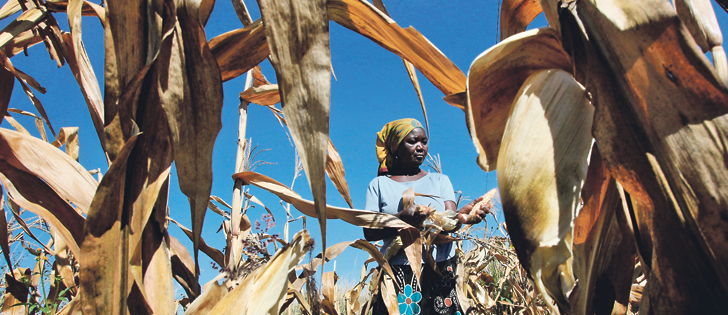It is astounding that any organization would advocate for in-creasing food insecurity, yet this is exactly what the United Nations’ Human Rights Council did in its Jan. 24 Report of the Special Rapporteur on the Right to Food. It has done so by calling for the removal of chemicals in the agricultural production of food.
“With minimal use of toxic chemicals, it is possible to produce healthier, nutrient-rich food, with higher yields in the longer term,” the report said.
Three crucial aspects of the council’s call for the removal of chemicals in food production would affect food security and bears greater scrutiny:
Read Also

Farmer ownership cannot be seen as a guarantee for success
It’s a powerful movement when people band together to form co-ops and credit unions, but member ownership is no guarantee of success.
Genetically modified herbicide-tolerant crops have been very successful at reducing overall pesticide use, transferring protection to neighboring non-GM crops.
Hutchinson et al. in the United States and Huang et al. in China have reported substantial chemical reductions by non-GM crop producers.
In the U.S., GM corn benefits were estimated to be US$6 billion in 2010 with $4.3 billion going to non-GM corn adopters because of the area-wide suppression of corn borers.
Almost 75 percent of the economic benefits (higher yields and lower input costs) from GM corn in the U.S. Midwest are going to non-GM corn farmers. Similar results have been found in China, where the amount of insecticide dropped from more than 15 kilograms per acre to less than five kg per acre in non-B.t. cotton fields.
Insecticide applications across the entire sample region dropped from 5.5 kg per acre to 1.5 kg per acre. Reduced weed and insect pressure allows crop yields to be higher, contributing to food security. Removing chemicals would allow insects and weeds to flourish, reducing yields.
One of the world’s most serious food safety issues is aflatoxin contamination.
Aflatoxin, which is produced by the fungus Aspergillus, is known to cause liver cancer, as well as esophageal/oesophageal cancer. Corn aflatoxins in China’s Qidong region resulted in one out of 10 men dying from liver cancer before the age of 45.
B.t. corn is protected from this fungus and therefore contains lower levels of this carcinogen. Using pesticides to control this fungus, along with crop innovations such as GM corn and im-proved diet, have helped to reduce this rate. Without agricultural chemicals, aflatoxins present in our food could increase again and so could cancer rates.
Twenty-five years ago, South African researcher JN Marais argued that poor weed control was the single biggest contributor to low corn yields for African smallholder farmers.
In an assessment of 147 peer-re-viewed articles reporting impacts following the adoption of GM crops, Klümper and Qaim (2014) found declines in chemical use of 37 percent, yield increases of 22 percent and farmer profit increases of 68 percent.
GM crop yields are 22 percent higher than conventional crops, while organic yields lag conventional yields by one-quarter to one-third. Organic crop yields lag those of GM crops by 36 to 45 percent.
Simply put, organic crop yields are 60 percent of a conventional crop yield, while GM crops are 20 percent higher, resulting in GM crop yields being double those of organic agriculture.
Removing the use of agricultural chemicals would be devastating for farmers in the developing world and lead to millions of needless deaths because of malnourishment or starvation. It is unfathomable that any organization would encourage the development of this type of situation.
Stuart Smyth is an assistant professor in the University of Saskatchewan’s agricultural and resource economics department and holds the university’s Industry Research Chair in Agri-Food Innovation. This blog appeared on the SAIFood website. It has been edited here for length.















